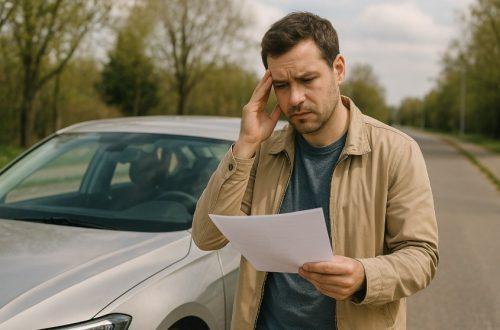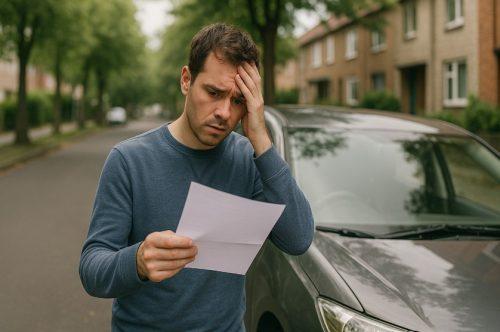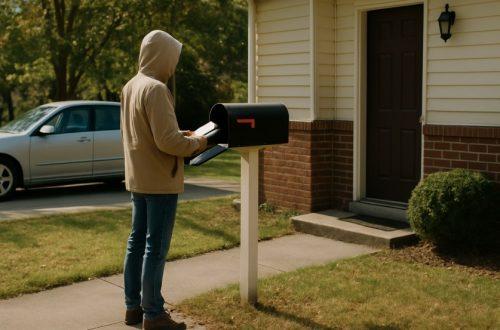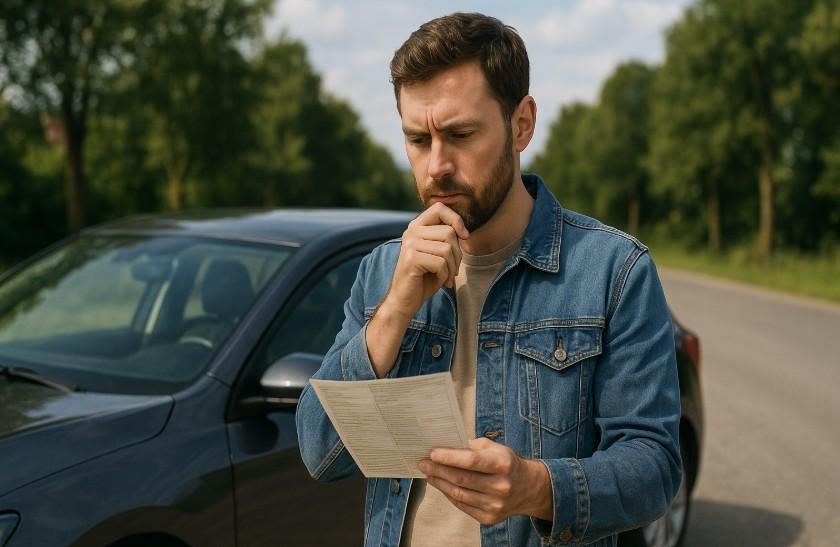Have you ever wondered if you need to update your vehicle registration when something changes with your car or personal details? Many drivers in the UK are unsure of when this legal responsibility kicks in. Yet, keeping your vehicle registration certificate (V5C) accurate and current is more than just an administrative task. It affects your car tax, insurance, and your legal standing as a vehicle keeper.
Whether you’re moving house, changing your name, selling your car, or modifying your vehicle, notifying the relevant authority is crucial. Ignoring these changes could lead to fines and complications that could easily be avoided.
The Driver and Vehicle Licensing Agency (DVLA) requires prompt updates for any significant changes related to your car or your personal circumstances. In this blog, you’ll learn everything you need to know about when and how to update your V5C, the possible consequences of not doing so, and what supporting evidence is required. Let’s get started.
Why Is Updating Your Vehicle Registration Certificate Important?

Keeping your vehicle registration certificate up to date is not just a legal necessity but also essential for protecting yourself from penalties and confusion. The V5C log book serves as an official document proving the identity of the registered keeper and contains vital information about the vehicle, including make, model, colour, and engine specifications.
Here’s why it’s important to keep your V5C current:
- Legal Compliance: It is a legal requirement under UK law to inform the DVLA of changes to your vehicle or your personal details.
- Avoiding Fines: You can be fined up to £1,000 for not updating your name or address on your V5C.
- Insurance Accuracy: Incorrect vehicle or personal information can affect your insurance cover or lead to rejected claims.
- Taxation Issues: Vehicle tax reminders and updates are sent to the address listed on the V5C. Incorrect details can result in missed payments and penalties.
- Proof of Ownership: If the car is stolen or involved in a dispute, an updated V5C is vital in proving legal possession.
- Smooth Vehicle Transactions: When buying or selling a car, accurate details speed up the transfer process and help avoid complications.
Failing to update your V5C is not worth the risk. It could jeopardise your legal rights, cause issues with insurance providers, or delay necessary administrative processes like taxing or selling your car.
What Triggers the Need to Update Your V5C?
There are several scenarios that legally require you to update your vehicle registration certificate. Whether you’re modifying your vehicle, relocating, or changing ownership, the DVLA expects accurate and up-to-date information on your V5C.
Let’s look at the common situations where an update is required:
Have You Sold or Bought a Vehicle Recently?
Whenever you sell, purchase, or transfer a vehicle, you’re required to update your V5C. If you’re the seller, you must inform the DVLA that the car has changed ownership. If you’re the buyer, you need to ensure the details are updated to show you as the new registered keeper.
Information that must be changed includes:
- The new owner’s name and address
- Date of sale or transfer
- Vehicle details (if anything changed at the time of sale)
Failure to do so could mean fines for unpaid tax or even liability for parking or speeding fines incurred by the new owner.
Did You Change Your Name or Address?
A common reason for updating your vehicle registration is moving house or undergoing a name change. If you’ve relocated, the DVLA needs your new UK address to ensure official letters reach you.
For a name change, proof such as a marriage certificate or deed poll must be submitted. You’ll need to write the updated details in your V5C and send it by post. Online services are available for address changes but not for simultaneous name and address updates.
Important reasons to update your personal details:
- Avoid penalties for missed tax renewal reminders
- Ensure your driving licence and tax details match
- Keep insurance and legal records aligned
Have You Made Any Vehicle Modifications?
Vehicle modifications may alter the car’s appearance, structure, or performance, and these must be declared. The DVLA requires that updates be made to the V5C when the following components are changed:
- Colour of the car
- Engine or cylinder capacity
- Fuel type, such as conversion to electric
- Number of seats
- Body type (e.g. van to campervan)
- Vehicle weight (for goods or larger vehicles)
- Structural components like chassis or frame
These changes might require a DVLA inspection. In some cases, you’ll also need to provide evidence such as receipts, MOT certificates, or manufacturer confirmation.
Are You Adding or Changing Personalised Number Plates?
When you add a personalised registration number, it must be officially recorded on your V5C. The same applies when removing or transferring one.
Not updating your number plate records can result in:
- Invalid vehicle tax records
- Inaccurate ownership history
- Problems selling the vehicle
By ensuring this update is made, you maintain the integrity of your vehicle’s documentation.
Table: Examples of Common Changes That Require a V5C Update
| Change Type | Required Action | Evidence Needed? |
| Buying or selling a vehicle | Update ownership | No |
| Change of address | Update details | No |
| Name change | Submit proof | Yes (e.g. marriage cert) |
| Colour or engine change | Notify DVLA | Yes (receipt or proof) |
| Fuel type conversion | Notify DVLA | Yes |
| Personalised number plates | Update online or post | No |
Each of these updates must be communicated promptly to remain compliant and to avoid complications with tax, insurance, and legal ownership.
What Happens If You Don’t Update Your Vehicle Registration?

Failing to update your V5C can result in more than just delayed mail. The implications can impact your finances, legal status, and insurance.
Here’s what could happen if you don’t make the necessary updates:
- Fines: You could be fined up to £1,000 if you fail to update your name or address.
- Missed Tax Notices: Vehicle tax reminders will be sent to the wrong address, potentially resulting in penalties for late payment.
- Invalid Insurance: Incorrect information on your registration could invalidate your insurance policy or cause payout delays.
- Liability Issues: If you sell a car but don’t update the V5C, you may still be liable for offences committed by the new owner.
- Vehicle Confiscation: In extreme cases involving repeated offences or misrepresentation, the vehicle may even be impounded.
The process of updating your V5C is simple and free in most cases. The consequences of ignoring it, however, can be time-consuming and costly.
How Can You Update Your Vehicle Registration Certificate?
Updating your V5C depends on the kind of change you’re making and the format of your log book. You can usually update your details either online or by post, depending on the specific scenario. Let’s walk through the steps you need to take.
Do You Have the New or Old Style V5C?
The style of your V5C determines which section you need to complete. The new version features multi-coloured numbered blocks on the cover.
- For new style: Use Section 1
- For old style: Use Section 7
If the change doesn’t appear in the relevant section, you can write the update manually in the “Vehicle Details” area and include a letter explaining the change.
Ensure you don’t tick the “new keeper” box when simply changing details like name or address unless ownership is being transferred.
Can You Update Your Details Online?

Yes, you can use the DVLA’s online portal for quick and easy updates.
This is available for:
- Change of address
- Selling or buying a vehicle
- Removing or assigning a number plate
To use the online service, you’ll need:
- Vehicle registration number
- 11-digit document reference number from your V5C
- Your UK address
This service is available daily between 7am and 8pm.
Benefits of using the online service:
- Instant confirmation
- Faster processing
- No need to send physical documents
When Must You Use Postal Application Instead?
Some updates cannot be made online.
You’ll need to send your V5C by post if:
- You are changing both name and address at once
- You’ve lost your V5C
- The vehicle has structural modifications
- You’re updating the fuel type or engine
Be sure to include any required supporting documents and send your V5C to the correct DVLA address, depending on the type of change.
Table: Postal vs. Online Update Methods
| Type of Update | Online Available | Postal Required | Supporting Documents |
|---|---|---|---|
| Address only | Yes | No | No |
| Name and address | No | Yes | Yes |
| Selling vehicle | Yes | No | No |
| Modifications | No | Yes | Yes |
| Number plate change | Yes | Optional | No |
Whether online or by post, updating your V5C ensures that your records are accurate, avoiding penalties and delays in future transactions.
What Supporting Evidence Do You Need to Provide?
Some changes to your vehicle require supporting evidence to be submitted along with your V5C update. This is to validate the authenticity of the modification or update.
Here’s what you might need to provide:
- Engine or Cylinder Capacity Change: Include a receipt showing the new engine number and capacity, or a letter from the garage that completed the work.
- Fuel Type Conversion: For vehicles converted to run on electricity or alternative fuels, submit a garage’s confirmation letter or invoice.
- Structural Changes: If you’ve changed the chassis, monocoque body, or motorcycle frame, you must send photos of the vehicle from various angles, the VIN plate, and a V627/1 or V627/3 form.
- Body Type or Weight Alterations: Include a design weight certificate or plating certificate if you’ve converted a van into a campervan or changed the gross weight.
- Personal Details: For name changes, provide official documentation such as a marriage certificate, deed poll, or legal proof of change.
Providing accurate evidence ensures faster processing and avoids rejection of your application.
How Long Does It Take to Receive the New V5C?

Once your request is processed, the DVLA aims to issue the updated V5C certificate within 2 to 4 weeks. However, there are variations depending on how you apply and the complexity of the change.
- Online applications: Typically processed within 5 working days
- Postal applications: Usually take 2 to 4 weeks
- Complex updates (e.g. structural changes): May require inspection, extending the timeframe
If you don’t receive your log book after 4 weeks, it’s advisable to contact the DVLA. After 6 weeks, a £25 fee may apply if they haven’t been notified.
Delays can also occur if your application is incomplete or lacks supporting documents. Always ensure you provide accurate and full information the first time.
Is There a Deadline for Updating Your Vehicle Registration?
Although there’s no fixed universal deadline in days, best practice is to update your V5C immediately after any relevant change.
Common time-sensitive updates include:
- Address changes: Update within 30 days of moving
- Vehicle sale or transfer: Notify DVLA immediately
- Engine or modification updates: As soon as the work is complete
Delays in updating your V5C can result in:
- Missed tax renewal notices
- Incorrect insurance information
- Fines up to £1,000
- Potential legal implications in case of disputes or accidents
To avoid complications, treat V5C updates as urgent and necessary tasks whenever changes occur.
Conclusion
Now that you understand when and how to update your vehicle registration certificate, it’s clear that keeping your V5C accurate is essential for legal, financial, and administrative reasons.
Whether you’ve moved house, modified your car, or transferred ownership, the process of informing the DVLA is straightforward when done on time.
Avoiding these updates can lead to fines, insurance issues, and even legal trouble. Don’t wait until it’s too late. Take control of your vehicle documentation and ensure your records are always up to date.
FAQs
How soon should you update your V5C after moving home?
You should update your V5C as soon as you move, ideally within 30 days, to avoid fines or missed tax notices.
Can you update your V5C online for all changes?
No, only certain changes like address updates or ownership transfers can be done online; others require a postal application.
What if you’ve lost your V5C and need to update details?
You must apply for a replacement V5C using form V62 and pay a fee before submitting changes.
Do all vehicle modifications require registration updates?
Not all, but significant ones like engine, colour, or body changes must be updated on your V5C.
How do you update the V5C if the vehicle is sold abroad?
You must notify the DVLA and fill in the appropriate export section of the V5C to register the sale abroad.
Can you be fined for late updates on the V5C?
Yes, failing to update personal or vehicle details could lead to fines of up to £1,000.
Is updating your V5C free or are there any charges?
Most updates are free unless you’re applying for a replacement V5C or have failed to notify changes promptly.








